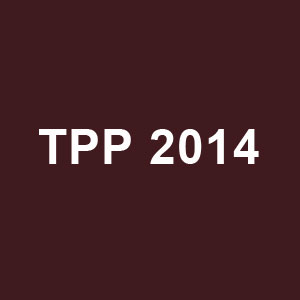The Discourse on Theatre – Plato, Foucault and a Critical History of the Stage
In The Drama of Ideas, Martin Puchner makes the case for re-evaluating the role that Plato plays in the formation of the modern European stage, proclaiming: ‘Plato must be rescued from the friends and enemies of the theatre alike’. This paper will take Puchner’s argument as a critical starting point for a philosophical repositioning of the history of modern theatre in light of the influence of Plato, but will place it at some distance from Puchner’s ameliorative approach to a Platonic Drama. While I agree that Plato is unhelpfully assimilated to the tradition of ‘anti-theatricalism’, I argue that the entire debate around the anti-theatrical prejudice succumbs to the problem identified by Foucault with the ‘history of ideas’, and takes scant account of the specific historical locale of its statements within the discursive field. Adopting a genealogical approach, I seek instead to displace both notions – anti-theatricalism and ameliorative Platonism – onto the discursive plane by situating them within a critical history of modern theatre. I understand this critical history not as a facile opposition between Platonism and Aristotelianism, nor even as an imagined Platonic ‘materialism’, but rather as a question of how philosophical ideas about theatre enter the discursive framing of theatre within modern societies. Specifically, I suggest a reading of Plato’s statements about theatre in relation to discourses of power that are concerned with the theatre grasped as a ‘problem of governance’ – or what Foucault once termed ‘governmentality’ – that is, government grasped as a ‘mentality’, a ‘technology’ and as an ‘art of governing’. Seen in this way, I show that ‘the discourse on theatre’ – emerging in the 18th Century, when Plato is translated into English and French for the first time – belongs to a wider category of discourses which, taken in their dispersion alongside discourses of law, criminality, morality, education, cultivation and so on, are to be grasped precisely in Platonic terms – as ‘theatrocratic’ discourses – that is, as discourses concerned with the problem of order and disorder.
Tony Fisher is a senior lecturer at Royal Central School of Speech and Drama, University of London, where he runs the research degrees programme and teaches dramaturgy. He studied philosophy at the University of Essex, writing his PhD thesis on the problem of historicality in Heidegger’s Being and Time. His current research interests are twofold: first, exploring the relationship of performance to the theory of radical democracy; second: examining the ancient antagonism, as articulated by Plato in the Republic, between philosophy and theatre in light of the development of the governance of the stage from the Enlightenment to the Twentieth Century. He has published articles on Radical Democratic Theatre, the aesthetics of the political in the work of Francis Alys, and on Castellucci’s theatre of ‘failed transcendence’, as well as on Heidegger and Sartre in journals such as Continental Philosophy Review and Sartre Studies International.

